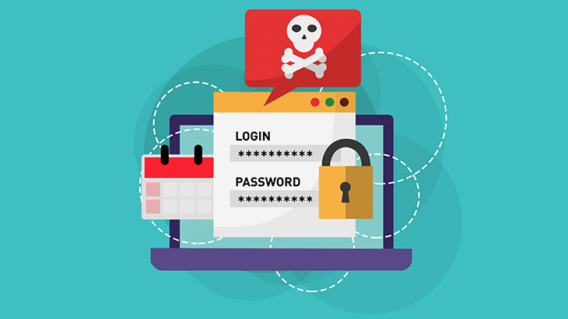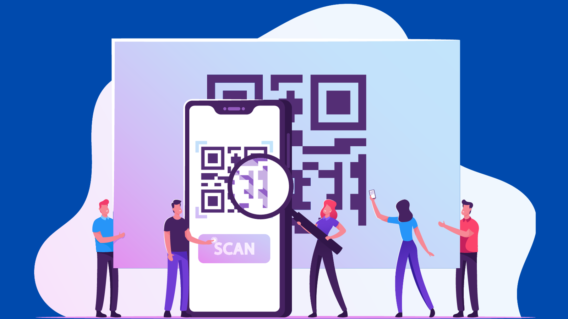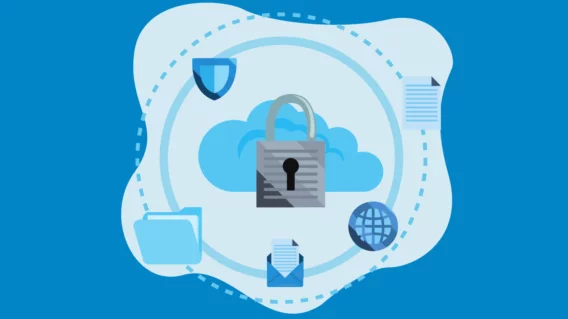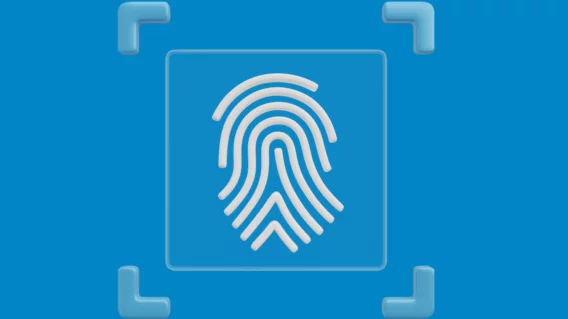Fresh start: How to prevent malware infections in 2021

As we move into 2021, now is the perfect time to start thinking about setting the groundwork for a more cyber secure year.
In terms of cybersecurity, this might mean ditching convenient (but risky) login processes, being a bit more cautious with your clicks and finally applying those updates that have been left on the back burner for a week or three.
Ready to take control of your cybersecurity? In this blog post, we’ll show you exactly what you need to do to protect your devices from malware in 2021.
1. Think before you click
Phishing preys on human tendencies and uses social engineering techniques to coax you into clicking things you shouldn’t. It’s responsible for 31 percent of cybersecurity incidents and is likely to be a prevalent threat in the months ahead as attackers seek to take advantage of the global shift to remote working.
Make 2021 a phish-free year by thinking twice before clicking. Here a few key tips to avoid falling for a phishing scam:
- Hover over URLs to check that the target address matches the linked text.
- Type in web addresses instead of clicking on links.
- Don’t open unsolicited email attachments.
- Install an anti-phishing browser extension like Emsisoft Browser Security.
- Call or text the sender of an email to confirm unusual requests.
- Be wary of language that conveys a sense of urgency.
- Be cautious of emails that don’t address you by name.
2. Apply updates
Many types of malware work by taking advantage of security flaws in your applications or operating system. To fix these known security vulnerabilities and protect their users, software developers regularly release updates that should be applied as soon as they’re available.
While it may be tempting to ignore those nagging pop-up windows, keeping your software up to date is crucial for maintaining device security and reducing the risk of malware infection.
3. Install a good antivirus
There are a few good options on the market for antivirus and anti-malware software, so take the time to think about your requirements, read some reviews and install a few different trial versions (not at the same time!) to get a feel for each product.
If you’re looking for reliable, fast and easy-to-use protection, feel free to download a free trial of Emsisoft Anti-Malware and see if it’s a good fit. See this blog post for more advice on how to choose the right antivirus software.
4. Secure your router
Responsible for providing all of your devices with Internet connectivity, your router is perhaps the most important gadget in your home. Keep it secure with the following tips:
- Update firmware: Router manufacturers release firmware (the low-level software your router runs on) updates to fix bugs, introduce new features and improve router security. While some modern routers can automatically update their firmware, we suggest periodically checking for updates via the router control panel and installing any available patches.
- Change default login details: Most routers are shipped with the same default username (“admin”) and password (“password”). As you might have guessed, these credentials aren’t particularly hard to crack. Change the default login details to something more secure.
- Change the Wi-Fi password: Make a fresh start in 2021 by changing your Wi-Fi password. You’ll need to reconnect all of your devices, but it also means that anyone who shouldn’t be lurking on the network will be kicked off. Always use WPA2 (or better) encryption for wireless security.
- Disable WPS: Wi-Fi Protected Setup (WPS) allows devices to connect to the network by pushing a button (which enables anyone with physical access to the router to connect to the network) or entering a PIN (which is more prone to brute force than an alphanumeric password). Unless you need WPS for a particular reason, we recommend disabling it.
- Disable remote access: Many modern routers come with remote access that allows you to manage your router while you’re away from home. To reduce the risk of compromise, remote access should be disabled unless you specifically require it.
5. Steer clear of pirated software
Pirated software poses a significant security risk (not to mention the serious ethical implications, which we won’t get into here). While statistics are scarce, it’s not uncommon for pirated software to be infected with malware such as password-stealing trojans, ransomware and cryptojackers.
In 2021, it’s time to retire the Jolly Roger and embrace your new life as a regular old landlubber. Wipe the slate clean by reformatting your device and only installing legitimate applications. There are many free, open-source business applications and productivity tools that provide similar functionality to paid alternatives, while gamers can legally enjoy a plethora of top-notch games without paying a cent as developers increasingly embrace free-to-play models.
6. Remove apps you don’t need
Over the years, you’ve probably amassed a bunch of applications on your PC and mobile devices that you never use. It’s time to get rid of them. Unpatched and misconfigured software are common entry points for malware, so removing unnecessary apps can reduce the risk of infection while freeing up storage space.
Once you’ve uninstalled the unnecessary apps, keep your storage devices uncluttered by only installing software that you actually need. Read dialog boxes carefully during installation to ensure you don’t inadvertently install potentially unwanted programs and be cautious when installing free software – remember, if you’re not paying for it, you’re probably the product.
7. Enable 2FA everywhere you can
Leave single-factor authentication in the past and start enabling two-factor authentication (2FA) everywhere you can.
2FA is a simple and effective way of adding an extra layer of security to your accounts. With 2FA, you’re required to provide both a password and a secondary form of identification (typically a verification code, PIN, hardware token or biometric pattern) to access your account.
Even if attackers are able to install keylogging malware on your device and obtain your login credentials, they won’t be able to access your 2FA-protected account without the second form of authentication.
8. Lockdown your smart devices
Internet connectivity is finding its way into more and more of our home devices. While smart devices might be ushering in a new era of convenience and efficiency, each Internet-connected device also provides a possible point of entry for malware attacks.
Below are a few tips to keep your smart devices secure:
- Apply network segmentation to isolate your smart devices on their own network and prevent an attack from spreading to your more important devices.
- Change the default passwords on all of your Internet-connected devices.
- Apply software and firmware updates when available.
- Secure your router using the best practices described earlier.
9. Use cloud-based antivirus management
U.S. households are now home to an average of 11 Internet-connected devices, according to figures from Deloitte. Taking control of the security of each individual device is a logistical nightmare, so your best bet is to look for a cloud-based solution that allows you to manage all the endpoints in your home from a single portal.
The Emsisoft Management Console, for example, comes free with all Emsisoft protection software and enables you to manage all of your devices remotely from a single pane of glass. Efficient, powerful and easy to use, it’s the best way to protect all of your family’s devices from malware in 2021.
With remote working and distance learning here to stay for the foreseeable future, it has never been more important to maintain a high level of cybersecurity. Applying the practices described in this article can go a long way toward securing your home network and keeping your devices free of malware in 2021.
Emsisoft Enterprise Security + EDR
Robust and proven endpoint security solution for organizations of all sizes. Start free trial


